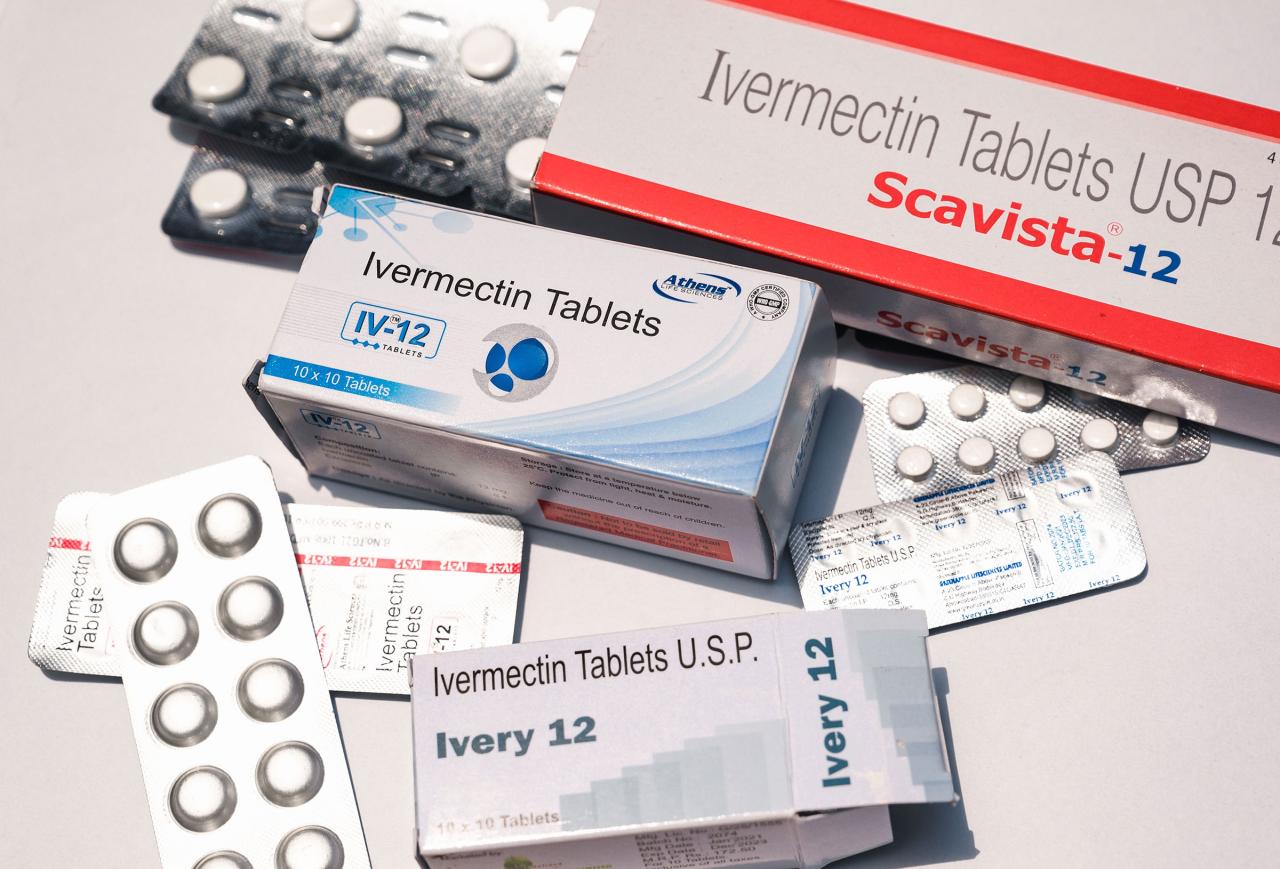
New Hampshire Senate Approves Ivermectin Without Prescription
New Hampshire Senate Committee passes no prescription ivermectin legislation, sparking debate and raising concerns about the potential impact on public health. The decision has been met with mixed reactions, with some praising the move as a victory for individual freedom and others criticizing it as a dangerous step backward. The legislation, which would allow individuals to purchase ivermectin without a prescription, has been lauded by some who believe that it will empower people to take control of their own healthcare.
However, others worry that it will lead to increased use of an unproven treatment for COVID-19, potentially leading to adverse health outcomes.
The debate surrounding ivermectin and its use in treating COVID-19 has been particularly heated, with conflicting scientific evidence and a barrage of misinformation. The drug, originally developed to treat parasitic infections, has been touted by some as a miracle cure for the virus, despite a lack of robust scientific evidence to support this claim. The World Health Organization (WHO) and the US Food and Drug Administration (FDA) have both issued warnings against using ivermectin to treat COVID-19, citing the lack of evidence and the potential for serious side effects.
Despite these warnings, the use of ivermectin for COVID-19 treatment has become a political issue, with some politicians and public figures actively promoting its use.
Ivermectin and COVID-19
Ivermectin is an antiparasitic drug that has been used for decades to treat various conditions, including river blindness, scabies, and strongyloidiasis. In recent years, there has been growing interest in its potential use as a treatment for COVID-19. However, the scientific evidence supporting its effectiveness against the virus is limited and controversial.
The New Hampshire Senate committee’s decision to pass legislation allowing for over-the-counter ivermectin has sparked controversy. While some see it as a step towards greater individual freedom in healthcare choices, others worry about the potential for misinformation and misuse. Meanwhile, a recent crackdown by ICE has resulted in the arrest of 23 individuals accused of serious crimes, including human rights abuses, as reported by MolNewsNet.
This highlights the ongoing debate surrounding immigration policy and the importance of ensuring public safety. The ivermectin legislation, however, continues to be a hot topic, with advocates arguing that it empowers individuals while critics remain concerned about its potential risks.
Ivermectin’s Known Uses and Effectiveness
Ivermectin has been approved by the FDA for use in humans to treat certain parasitic infections, including:
- Onchocerciasis (river blindness): Ivermectin is highly effective in killing the larvae of the Onchocerca volvulus parasite, which causes river blindness.
- Strongyloidiasis: Ivermectin is also effective in treating strongyloidiasis, a parasitic infection caused by the Strongyloides stercoralis roundworm.
- Scabies: Ivermectin can be used to treat scabies, a skin infestation caused by the Sarcoptes scabiei mite.
Ivermectin is also used off-label for other conditions, such as rosacea and head lice, but its effectiveness for these uses is less well-established.
The New Hampshire Senate committee’s decision to pass legislation allowing for the sale of ivermectin without a prescription is a move that’s sure to spark debate. While some see it as a way to empower individuals to make their own healthcare choices, others are concerned about the potential for misuse and misinformation. This reminds me of the ongoing saga of Elon Musk’s bid to acquire Twitter, which has seen some interesting twists and turns, including reports that Twitter is considering a “poison pill” tactic to thwart the takeover.
Musk responded to these reports with his own unique brand of social media commentary, adding another layer to the story. The ivermectin debate, like the Twitter saga, is likely to continue to be a topic of discussion for some time to come.
Scientific Evidence for Ivermectin’s Effectiveness Against COVID-19
While some early studies suggested that ivermectin might have antiviral activity against COVID-19, subsequent larger and more rigorous studies have failed to demonstrate its effectiveness in preventing or treating the disease.
The New Hampshire Senate committee’s decision to pass legislation allowing for the sale of ivermectin without a prescription has sparked controversy, highlighting the ongoing debate surrounding the drug’s effectiveness and safety. Meanwhile, the Twitter landscape is also experiencing its own shake-up as twitter shareholders face a tough choice after Elon Musk’s takeover bid , raising questions about the future of the platform and its commitment to free speech.
While the ivermectin legislation focuses on individual health choices, the Twitter situation raises concerns about the broader implications of corporate control over online discourse and the potential for censorship.
- The World Health Organization (WHO) and other major health organizations have recommended against the use of ivermectin for COVID-19 treatment, except in carefully controlled clinical trials.
- The FDA has not authorized or approved ivermectin for the prevention or treatment of COVID-19.
- Numerous studies have found that ivermectin does not reduce the risk of hospitalization, death, or other severe outcomes in COVID-19 patients.
Potential Risks and Side Effects of Ivermectin Use
Ivermectin is generally considered safe when taken at the recommended dose for its approved uses. However, taking high doses or using ivermectin for prolonged periods can lead to adverse effects, including:
- Gastrointestinal symptoms: Nausea, vomiting, diarrhea, abdominal pain.
- Neurological symptoms: Dizziness, headache, seizures, coma.
- Liver damage: Ivermectin can cause liver damage, particularly when taken in high doses.
- Drug interactions: Ivermectin can interact with other medications, including blood thinners and some antibiotics.
Comparison of Ivermectin with Other COVID-19 Treatments
Several effective treatments for COVID-19 are available, including:
- Antiviral medications: Paxlovid and molnupiravir are antiviral medications that have been shown to reduce the severity of COVID-19.
- Monoclonal antibodies: Monoclonal antibodies are laboratory-made proteins that can help the body fight the virus.
- Corticosteroids: Corticosteroids, such as dexamethasone, can help reduce inflammation and improve breathing in patients with severe COVID-19.
- Remdesivir: Remdesivir is an antiviral medication that can shorten the duration of COVID-19 in hospitalized patients.
These treatments have been rigorously studied and are supported by strong scientific evidence. In contrast, the evidence for ivermectin’s effectiveness against COVID-19 is weak and inconclusive.
Public Health and Policy Considerations

The decision to pass legislation allowing for the sale of ivermectin without a prescription raises significant public health and policy concerns. While proponents argue that it empowers individuals to make their own healthcare choices, this approach risks undermining public health efforts and potentially exacerbating the spread of misinformation.
The Role of Public Health Officials
Public health officials play a crucial role in informing policy decisions regarding ivermectin and other medications. They are responsible for evaluating scientific evidence, assessing potential risks and benefits, and communicating clear and accurate information to the public. In the case of ivermectin, public health officials have consistently emphasized the lack of scientific evidence supporting its use for COVID-19 treatment, while highlighting potential risks associated with its misuse.
Misinformation and Disinformation
The internet has become a breeding ground for misinformation and disinformation surrounding ivermectin and COVID-19. This has led to a significant number of people seeking out and using ivermectin for COVID-19 treatment despite the lack of scientific evidence supporting its effectiveness. Social media platforms and online forums have amplified these claims, often through the spread of false or misleading information, conspiracy theories, and anecdotes presented as scientific evidence.
Approaches in Other States and Countries
While New Hampshire has taken the unprecedented step of allowing over-the-counter ivermectin sales, other states and countries have adopted different approaches. Many jurisdictions have explicitly cautioned against the use of ivermectin for COVID-19 treatment, emphasizing the lack of scientific evidence and potential risks. For example, the Food and Drug Administration (FDA) has issued multiple warnings against the use of ivermectin for COVID-19, citing its potential for serious side effects and lack of efficacy.
Ethical Considerations
The promotion and use of ivermectin for COVID-19 treatment raise several ethical concerns. One major concern is the potential for harm to individuals who self-medicate with ivermectin without proper medical supervision. Another ethical concern is the potential for exploitation of vulnerable populations, who may be more susceptible to misinformation and disinformation. Furthermore, the promotion of unproven treatments can undermine public trust in healthcare professionals and institutions, leading to a decline in vaccine uptake and adherence to public health recommendations.
Political and Social Implications: New Hampshire Senate Committee Passes No Prescription Ivermectin Legislation

The debate surrounding the use of ivermectin for COVID-19 treatment has become deeply politicized, with strong opinions on both sides. This polarization is fueled by various factors, including misinformation, distrust in scientific consensus, and political ideologies.
Media Coverage and Public Perception, New hampshire senate committee passes no prescription ivermectin legislation
The media has played a significant role in shaping public perception of ivermectin and its potential use for COVID-19. Some media outlets have promoted the use of ivermectin, often citing anecdotal evidence and personal testimonials, while others have emphasized the lack of scientific evidence and potential risks associated with its use. This conflicting coverage has contributed to confusion and uncertainty among the public, further exacerbating the polarization surrounding the issue.
“The media’s role in this debate is crucial, as it can influence public opinion and shape policy decisions.”
Examples of how the media has covered the debate include:
- Fox News has featured segments promoting the use of ivermectin for COVID-19, often interviewing individuals who claim to have benefited from its use.
- The New York Times has published articles highlighting the lack of scientific evidence supporting ivermectin’s efficacy against COVID-19 and the potential dangers of self-medication.
- Social media platforms have also played a role in spreading misinformation about ivermectin, with users sharing anecdotal evidence and unsubstantiated claims about its effectiveness.
Potential Social and Cultural Implications
The legislation passed in New Hampshire could have significant social and cultural implications. It could potentially:
- Increase the use of ivermectin for COVID-19 treatment, even without scientific evidence supporting its efficacy.
- Further erode trust in public health institutions and scientific consensus.
- Create a sense of division and conflict within communities, as people with differing views on ivermectin clash.
- Lead to an increase in misinformation and disinformation about ivermectin and its potential use.
The New Hampshire Senate Committee’s decision to pass legislation allowing for the sale of ivermectin without a prescription is a significant development in the ongoing debate surrounding the drug’s use in treating COVID-19. The decision has raised concerns about the potential for increased use of an unproven treatment, potentially leading to adverse health outcomes. It remains to be seen how this legislation will be implemented and what its ultimate impact will be on public health.
The debate surrounding ivermectin is likely to continue, with ongoing scientific research and public health considerations shaping the conversation. As the pandemic continues to evolve, it is crucial to rely on evidence-based information and guidance from trusted sources like the CDC and WHO to make informed decisions about our health.






